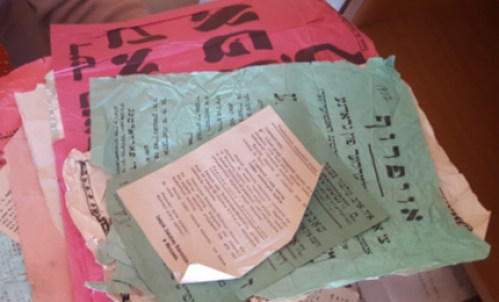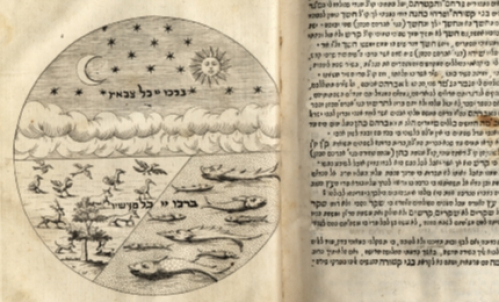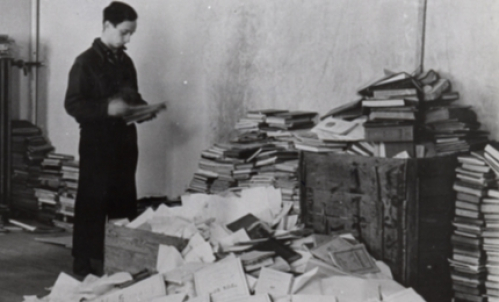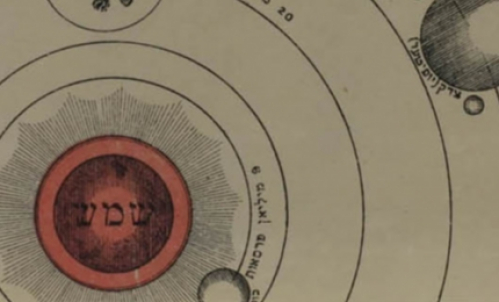Rare Typescript by Martin Buber
By ROBERTA NEWMAN with VIOLET LUTZ
Among the over 1,700 folders of documents in YIVO’s Yiddish Language and Literature Collection (RG 3) is a short German typescript by Martin Buber, the acclaimed Viennese-born philosopher and religious thinker. Signed by Buber himself, it appears to be an early example of the dialogic style of thinking which he later developed philosophically in his 1923 Ich und Du (I and Thou), his most famous work.
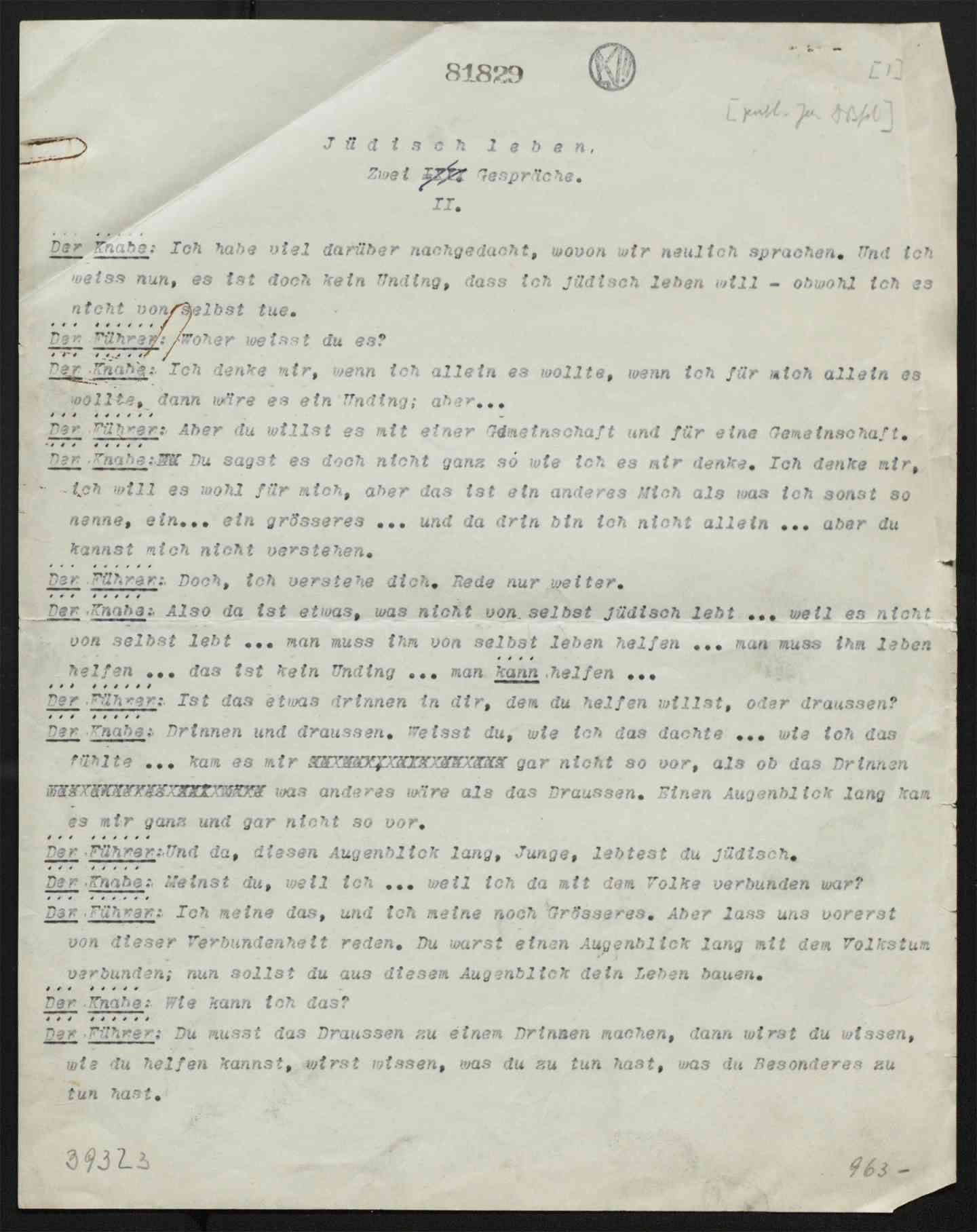
In the Yiddish Language and Literature Collection is Part II of an essay called Jüdisch Leben: Zwei Gespräche (Living a Jewish Life: Two Conversations). It dates from the era in which he was integrally involved in the Zionist movement, particularly as an ideological mentor to Zionist youth movements. In 1918, he was the keynote speaker at a grand Jugendtag (Youth Day), a three-day event aimed at uniting the various Zionist youth movements that were then taking form among young Jewish refugees in Vienna. The Jugendtag was the brainchild of Siegfried Bernfeld (whose papers are held in the YIVO Archives as RG 6.)
Jüdisch Leben: Zwei Gespräche is written in the form of a dialogue between a leader (teacher) and a youth, in which the youth seeks guidance on how to live a Jewish life and the leader engages him with questions about his experiences and aspirations. Distinctions are made between the principles and goals of Jewish and general German youth movements. Knowledge of Jewish history and Hebrew is pointed to as key to the formation of Jewish identity and to living a Jewish life for the sake of both one’s self and the Jewish people.
It is likely that the typescript at YIVO, which contains handwritten corrections by Buber, was prepared for publication in Siegfried Bernfeld's journal Jerubbaal, where it appeared in the first two issues in April and May 1918. It was later also published in Berlin in 1920, in Die Jüdische Bewegung (The Jewish Movement), a collection of Buber’s writings from 1916 to 1920.
This document and many others from the YIVO Archives in New York have been digitized for the Edward Blank YIVO Vilna Collections Project, a 7-year international initiative.
Roberta Newman is YIVO’s Director of Digital Initiatives.
